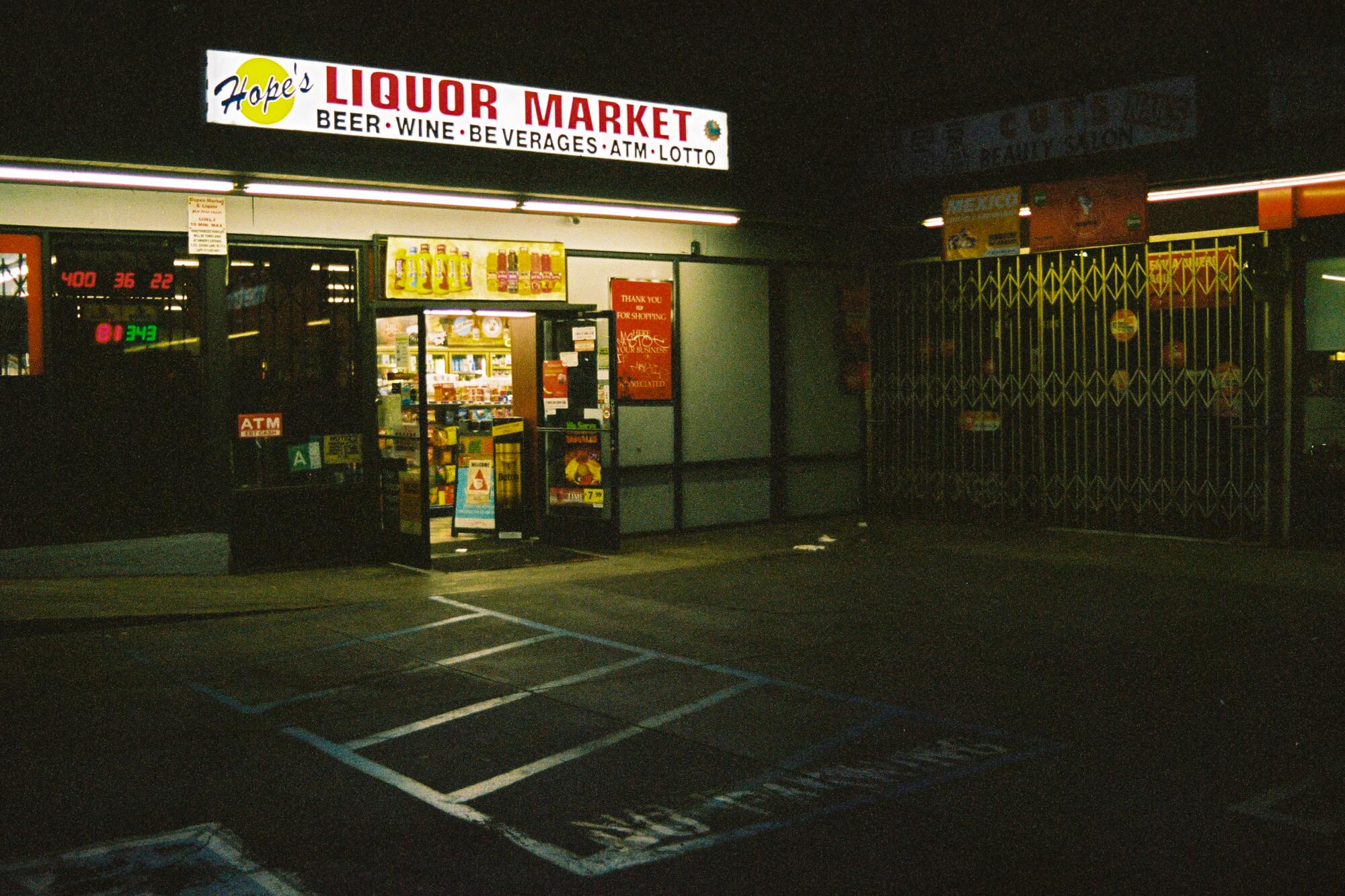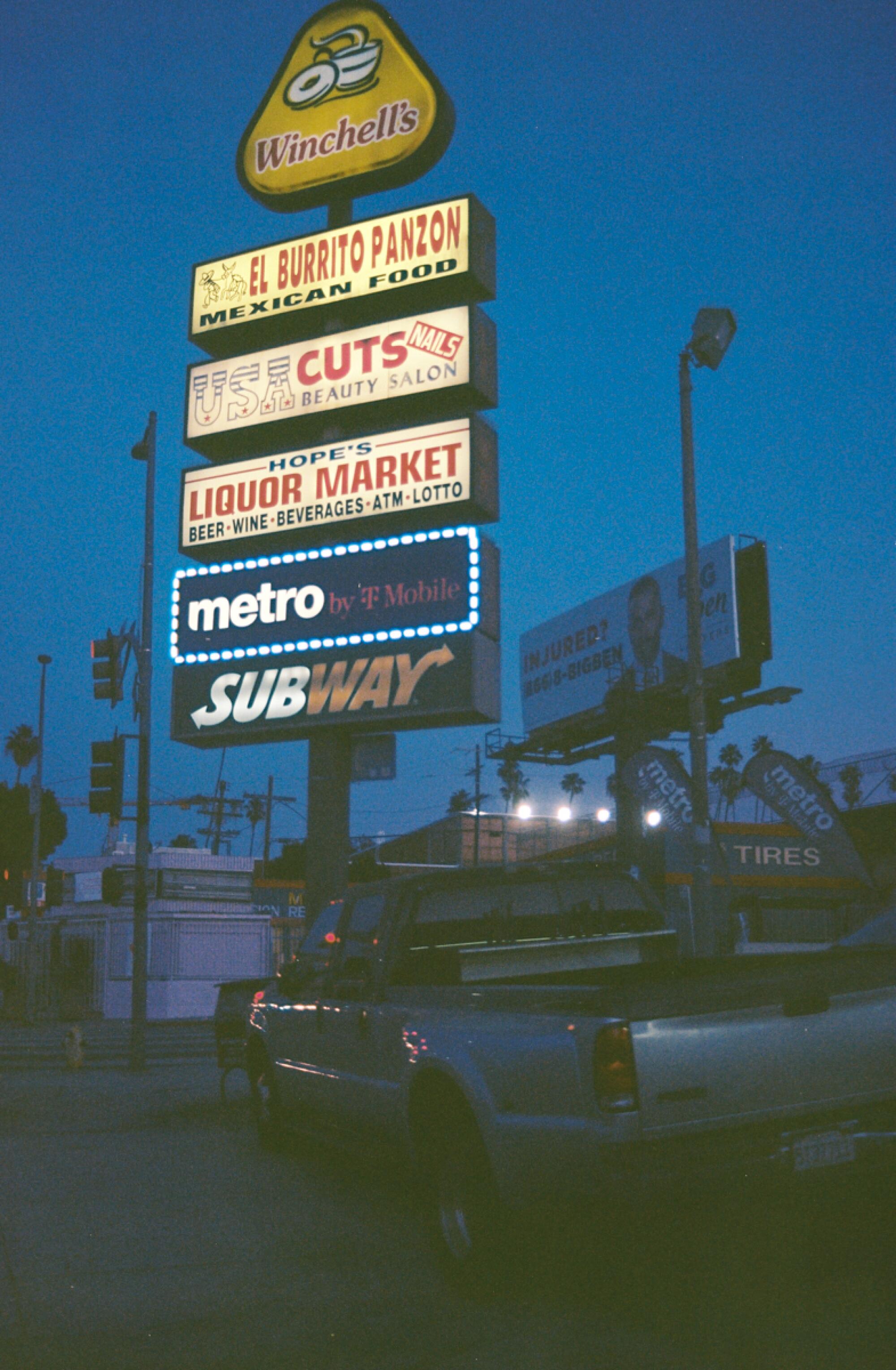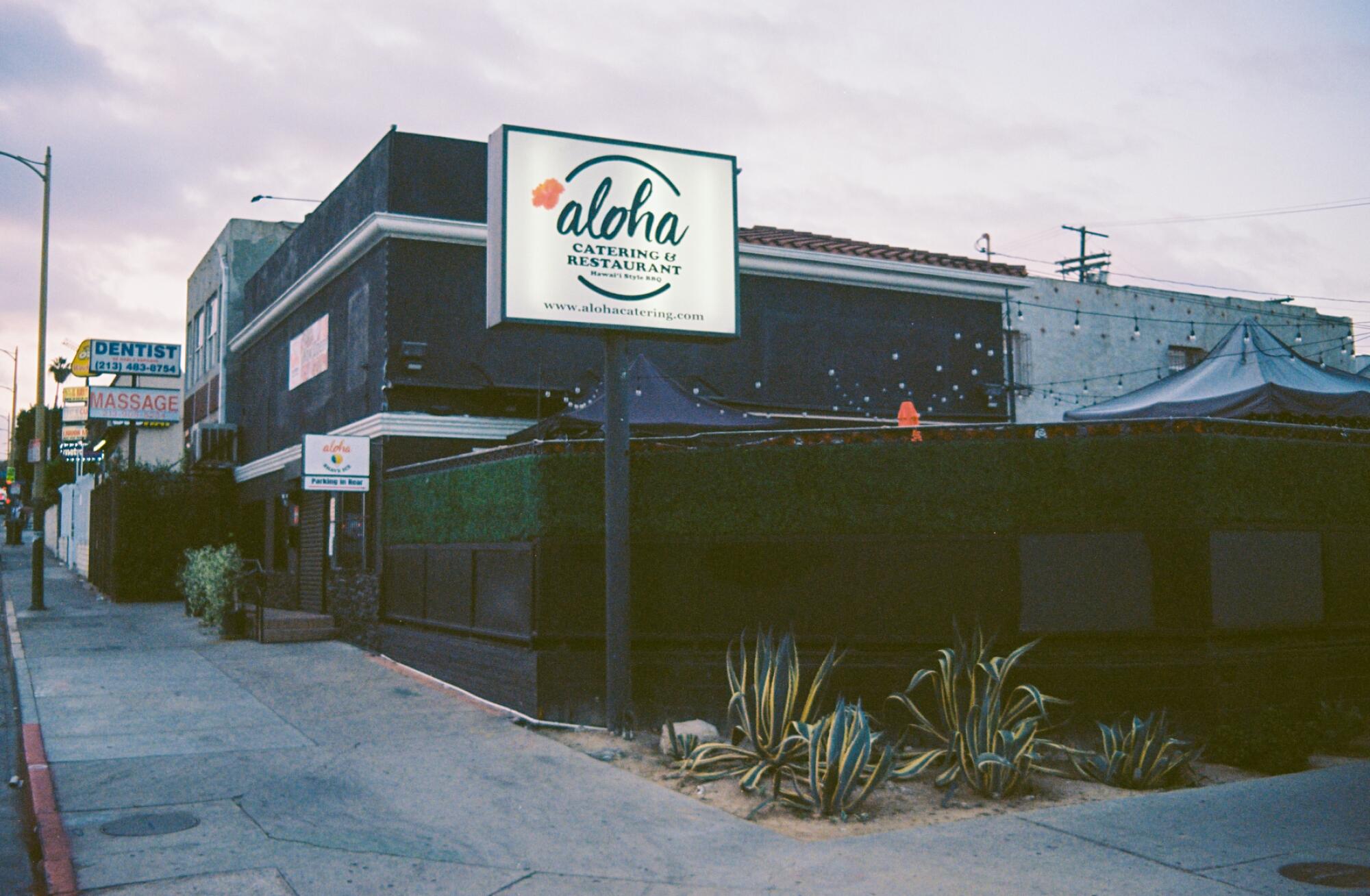
- Share via
This story is part of Image issue 11, “Renovation,” where we explore the architecture of everyday life — and what it would look like to tear it all down. Read the whole issue here.
I first met Lionel Morales in March of 2020 on the southwest corner of Alvarado Street and Beverly Boulevard in Historic Filipinotown, after I witnessed a driver run over his leg. The driver fled, leaving Lionel screaming in agony and me standing in shock. I didn’t know his real name at the time — people in the neighborhood referred to him as “boy” — but weeks later, after searching in the streets and letting people know I was looking for him, I was able to track Lionel down. Over the next two years we grew close and always made a point to look out for each other. The last time I saw Lionel alive was in January, across the street from where we met.
In the time that I knew Lionel, his life revolved around the intersection of Beverly and Alvarado. And despite the many attempts to displace him from the area, he fought hard to remain a fixture in the community. When he was swept from one corner, he rebuilt his life on another, no more than a couple of blocks away.

Lionel was proudly born and raised in the San Gabriel Valley, but for the final years of his life, Filipinotown was home. He referred to himself as “the last man standing,” because he watched so many of his unhoused comrades disappear due to “sweeps” — displacements disguised as sanitation efforts. As a Vietnam War veteran, Lionel knew a thing or two about fighting. “I’m a soldier,” he once told me while recounting the time he came to the aid of a friend suffering from an overdose. “It was my duty to make sure that he can see this next morning,” Lionel told me. With a dose of Narcan, a medicine that quickly reverses the effects of opioid overdose, Lionel had saved his friend’s life.
More stories from Renovation
Author Xuan Juliana Wang reconsiders the meaning of an ADU.
Activist Theo Henderson and scholar Ananya Roy show you what listening to the unhoused looks like.
Critic Dave Schilling investigates the meaning of ‘chic’ carpets.
Artist Ryan Preciado can show you a new path for furniture design.
Poet Christopher Soto envisions an L.A. without carceral architecture.
In the fall of 2020, Aloha Catering, a Hawaiian restaurant, moved into the area and sought the help of Councilmember Mitch O’Farrell, as well as the LAPD, to displace the encampment in time for its opening, according to emails that I obtained through a public records request. “Everybody went their own way,” Lionel told me a few weeks after the sweep. Months earlier, the same councilmember was instrumental in getting Lionel into Project Roomkey, a program to shelter unhoused residents in vacant hotel rooms during the pandemic.

The sweep pushed Lionel further into homelessness and further from resources. One volunteer from Street Watch L.A., a local community outreach group, tried to bring Lionel warm clothes and a cane but couldn’t locate him after the sweep. I also saw less of him, but when I did it was always near the corner of Alvarado and Beverly; I can’t remember ever seeing him more than a block or two from the intersection. His health had visibly deteriorated. When I last ran into him, he was on the southeast side of Alvarado near the bus stop, and he couldn’t walk across the street on his own. He had no money to buy himself food or any way of getting around. He was incredibly frail but optimistic. “I got a room, Lex … finally,” I remember him telling me. After years of trying to obtain housing, he was finally indoors. Sadly, a few weeks later, on Feb. 16, Lionel died in a hospital at the age of 69.
Lexis-Olivier Ray is a staff investigative reporter at L.A. Taco and artist based in Los Angeles.
More stories from Image






